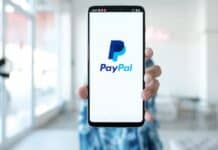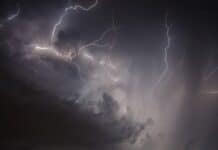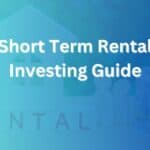The prospect of purchasing foreclosed homes with no money down presents an intriguing opportunity for aspiring homeowners and real estate investors. Foreclosed homes are properties seized by lenders due to the previous owner’s inability to make mortgage payments. This article will delve into the strategies and options available to navigate the foreclosure market without requiring a substantial upfront investment. By understanding the process of buying foreclosed homes with no money, individuals can explore a potentially lucrative avenue in real estate while minimizing financial risks.
How To Buy Foreclosed Homes With No Money?
- Government-backed Programs: Explore government programs designed to assist homebuyers, such as the USDA loan program or the VA loan program. These programs provide options for eligible individuals to secure financing with little to no down payment, making it easier to purchase a foreclosed property.
- Seller Financing: Look for motivated sellers who are willing to finance the purchase themselves. With seller financing, the seller acts as the lender and allows you to make payments directly to them, often without requiring a down payment. This can be a viable option when buying foreclosed homes, as sellers may be more open to creative financing arrangements.
- Partnerships or Joint Ventures: Consider partnering with someone who has the necessary funds to invest in the foreclosed property. You can offer your expertise, time, or sweat equity in exchange for your financial contribution. This collaboration allows you to acquire the property without personally having the upfront capital.
- Lease-to-Own Agreements: Negotiate a lease-to-own agreement with the seller or financial institution holding the foreclosed property. This arrangement allows you to rent the property for a specified period, with a portion of the monthly payment going towards the eventual purchase of the home. It gives you time to save up for a down payment while securing your right to purchase the property.
- Wholesaling: Engage in real estate wholesaling, where you find foreclosed properties and put them under contract with the intention of assigning the contract to another buyer. In this scenario, you act as a middleman and earn a fee for facilitating the deal. While this approach doesn’t involve buying the property directly, it allows you to generate income that can be used for future investments.
Understanding Foreclosed Homes
Foreclosed homes are properties that have been repossessed by lenders or financial institutions due to the previous owner’s failure to make mortgage payments. This process occurs when the homeowner defaults on their loan, and the lender takes legal action to recover the outstanding debt. Understanding the dynamics of foreclosed homes is crucial for those interested in purchasing these properties.
Foreclosures can happen for various reasons, including financial hardship, job loss, or a significant change in the homeowner’s financial situation. As a result, the lender takes possession of the property and seeks to sell it to recoup their investment. These homes can offer potential buyers an opportunity to acquire properties at a discounted price, often below market value.
When considering foreclosed homes, it’s important to understand the types of foreclosures available. There are two primary types: judicial foreclosure, where the foreclosure process goes through the court system, and non-judicial foreclosure, which occurs outside of the court system and follows the procedures outlined in the mortgage or deed of trust. Each type has its own set of rules and regulations, and the specific process may vary depending on the state or jurisdiction.
Before purchasing a foreclosed home, it is essential to conduct thorough research and due diligence. This includes assessing the condition of the property, determining the market value, and reviewing any potential liens or title issues. Engaging the services of a qualified real estate agent or attorney specializing in foreclosures can provide valuable guidance and ensure a smooth transaction. By understanding the intricacies of foreclosed homes, buyers can make informed decisions and potentially capitalize on the opportunities presented by the foreclosure market.
Why Do Homes Get Foreclosed?
- Financial Hardship: One of the primary reasons homes get foreclosed is due to the financial hardship faced by homeowners. This could be the result of job loss, reduced income, unexpected medical expenses, or other financial difficulties that make it challenging to meet mortgage obligations.
- Defaulting on Mortgage Payments: When homeowners consistently fail to make their mortgage payments as agreed upon in their loan agreement, it can lead to foreclosure. Defaulting on mortgage payments for an extended period triggers the lender’s right to initiate foreclosure proceedings to recover their investment.
- Adjustable Rate Mortgages (ARMs): Some homeowners opt for adjustable rate mortgages, where the interest rate fluctuates over time. If the interest rate rises significantly, homeowners may find themselves unable to afford the increased mortgage payments, leading to foreclosure.
- Negative Equity or Underwater Mortgages: Negative equity occurs when the outstanding loan balance on a property exceeds its current market value. Homeowners with underwater mortgages may face challenges selling their homes or refinancing, which can make it difficult to avoid foreclosure if they’re struggling to meet their financial obligations.
- Property Tax and Insurance Defaults: Failure to pay property taxes or maintain adequate insurance coverage on a home can also result in foreclosure. Local governments have the authority to foreclose on properties with delinquent property taxes, while lenders often require homeowners to maintain insurance coverage as a condition of their loan agreement.
Tips For Successfully Buying Foreclosed Homes With No Money
- Research and Educate Yourself: Take the time to thoroughly understand the process of buying foreclosed homes and the specific requirements in your area. Research local laws, foreclosure procedures, and financing options are available to buyers with no money down.
- Be Prepared for Financing Options: Understand the various financing options available for purchasing foreclosed homes with no money down. These may include seller financing, lease-to-own agreements, or partnerships/joint ventures. Assess the pros and cons of each option and determine which aligns best with your financial situation and long-term goals.
- Conduct Thorough Due Diligence: Before making an offer, thoroughly evaluate the property’s condition, potential repair costs, title status, and any liens or encumbrances. Engage a professional home inspector and conduct a title search to uncover any potential issues that could affect your purchase or future ownership.
- Negotiate with Banks and Sellers: Foreclosed homes are often sold through banks or lending institutions. Use your negotiation skills to secure favorable terms, such as a reduced purchase price, closing cost assistance, or flexible financing arrangements. Motivated sellers may be more willing to negotiate to offload the property quickly.
- Have a Solid Exit Strategy: Consider your long-term plans for the foreclosed property. Whether you intend to rent it out, renovate and sell it, or use it as your primary residence, having a clear exit strategy is crucial. Ensure that your strategy aligns with your financial goals and the potential market conditions in your area.
Conclusion
In conclusion, buying foreclosed homes with no money down is an enticing opportunity that requires careful planning, research, and strategy. By exploring government programs, seller financing, partnerships, and lease-to-own agreements, you can minimize your upfront costs and enter the foreclosure market. Building relationships with key players in the industry, conducting thorough due diligence, and negotiating effectively are crucial for success. Additionally, having a solid exit strategy ensures that you maximize the potential benefits of your investment. While it may be challenging, with the right approach and diligence, buying foreclosed homes with no money down can be a rewarding venture in real estate.
FAQ’s
Can I Really Buy A Foreclosed Home With No Money Down?
Buying a foreclosed home with no money down is challenging but not impossible. It requires exploring alternative financing options, government programs, or negotiating with motivated sellers who are open to creative financing arrangements.
What Are The Risks Associated With Buying Foreclosed Homes?
Buying foreclosed homes comes with certain risks. These can include hidden repair costs, liens or title issues, potential property damage, or difficulties in assessing the property’s true condition. It’s crucial to conduct thorough due diligence and work with professionals to mitigate these risks.
How Can I Find Foreclosed Homes For Sale?
Foreclosed homes can be found through various sources. Online resources, real estate websites, local banks, government agencies, and real estate agents specializing in foreclosures are good starting points. These platforms often list foreclosed properties available for purchase.
Are Foreclosed Homes Always A Good Deal?
Not all foreclosed homes are good deals. While some properties may be priced below market value, others may require substantial repairs or have hidden costs. It’s important to carefully assess the property, consider repair and renovation expenses, and compare the price with similar properties in the area before making a purchase.
What Happens If I Buy A Foreclosed Home With Existing Tenants?
When buying a foreclosed home with existing tenants, you inherit the existing lease agreements and tenant rights. It’s important to review the lease contracts, understands the tenants’ rights, and comply with local landlord-tenant laws. Communicating with tenants and determining your plans for the property can help ensure a smooth transition and minimize potential legal issues.












